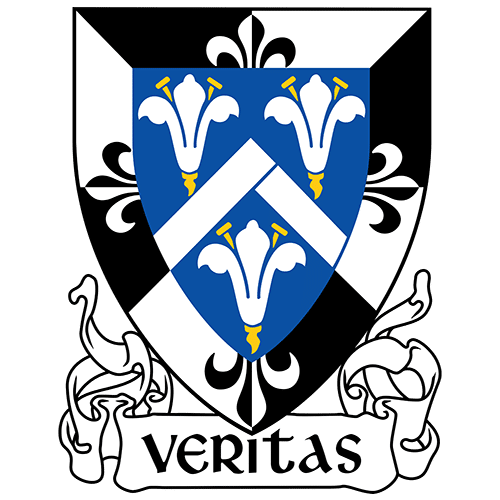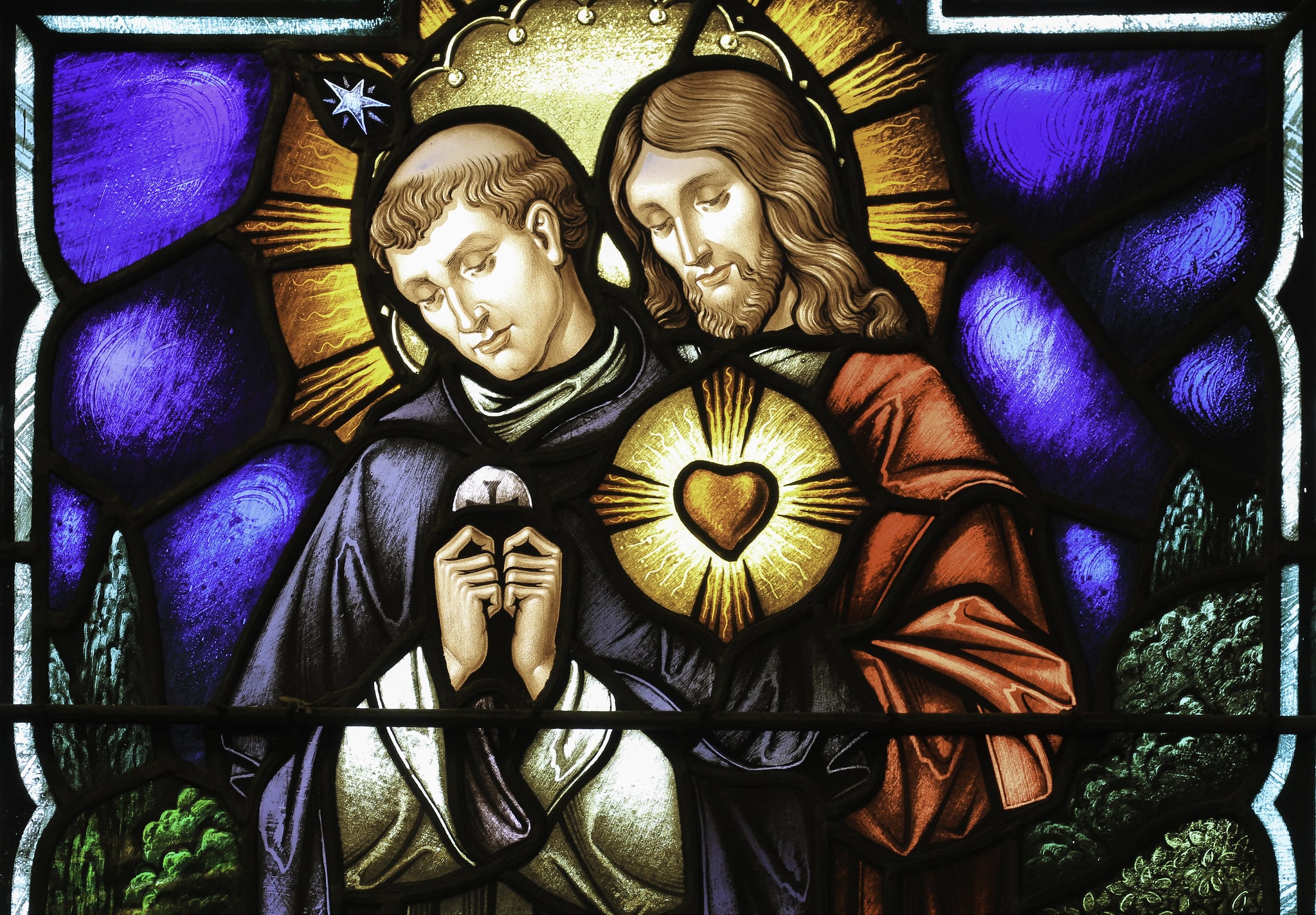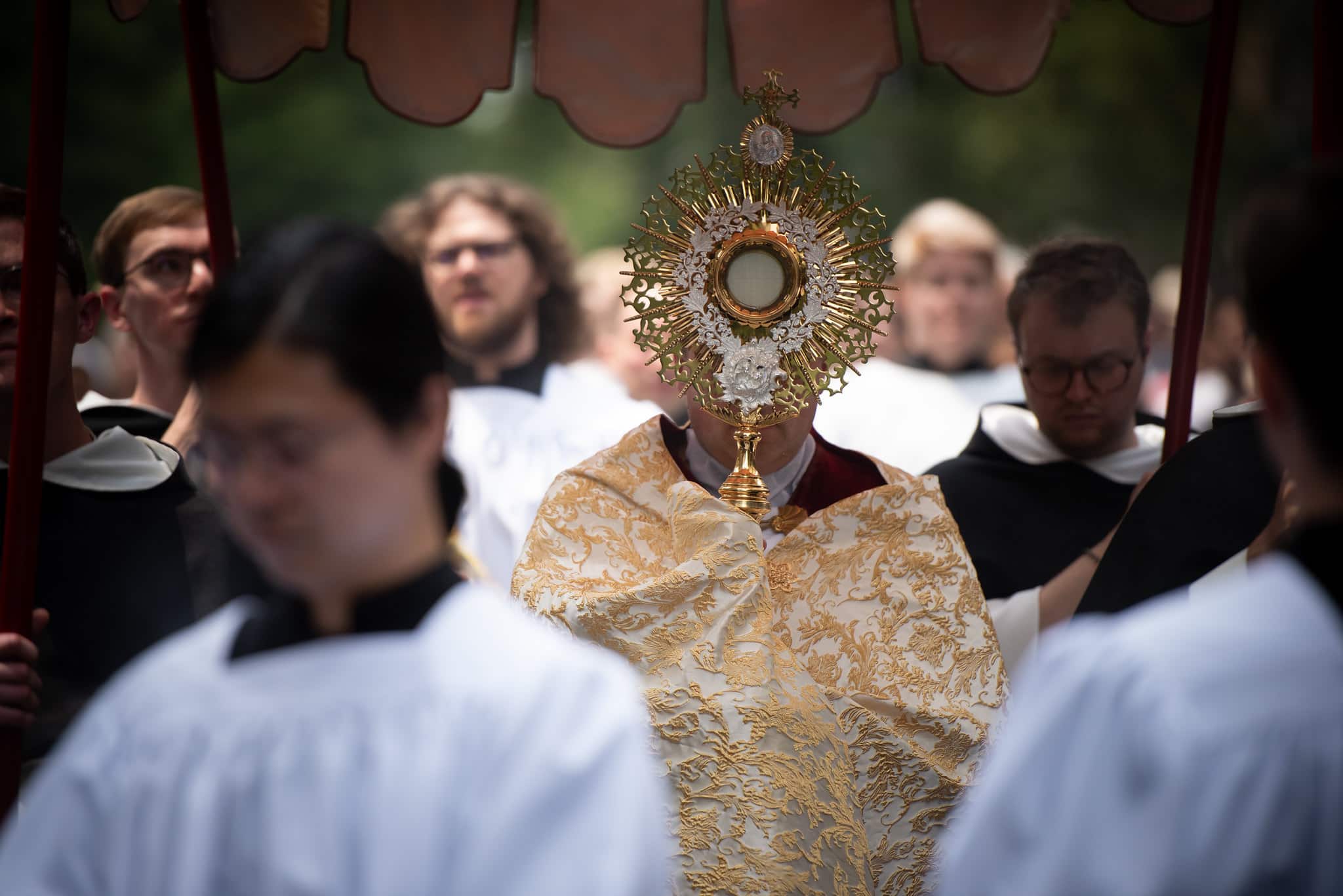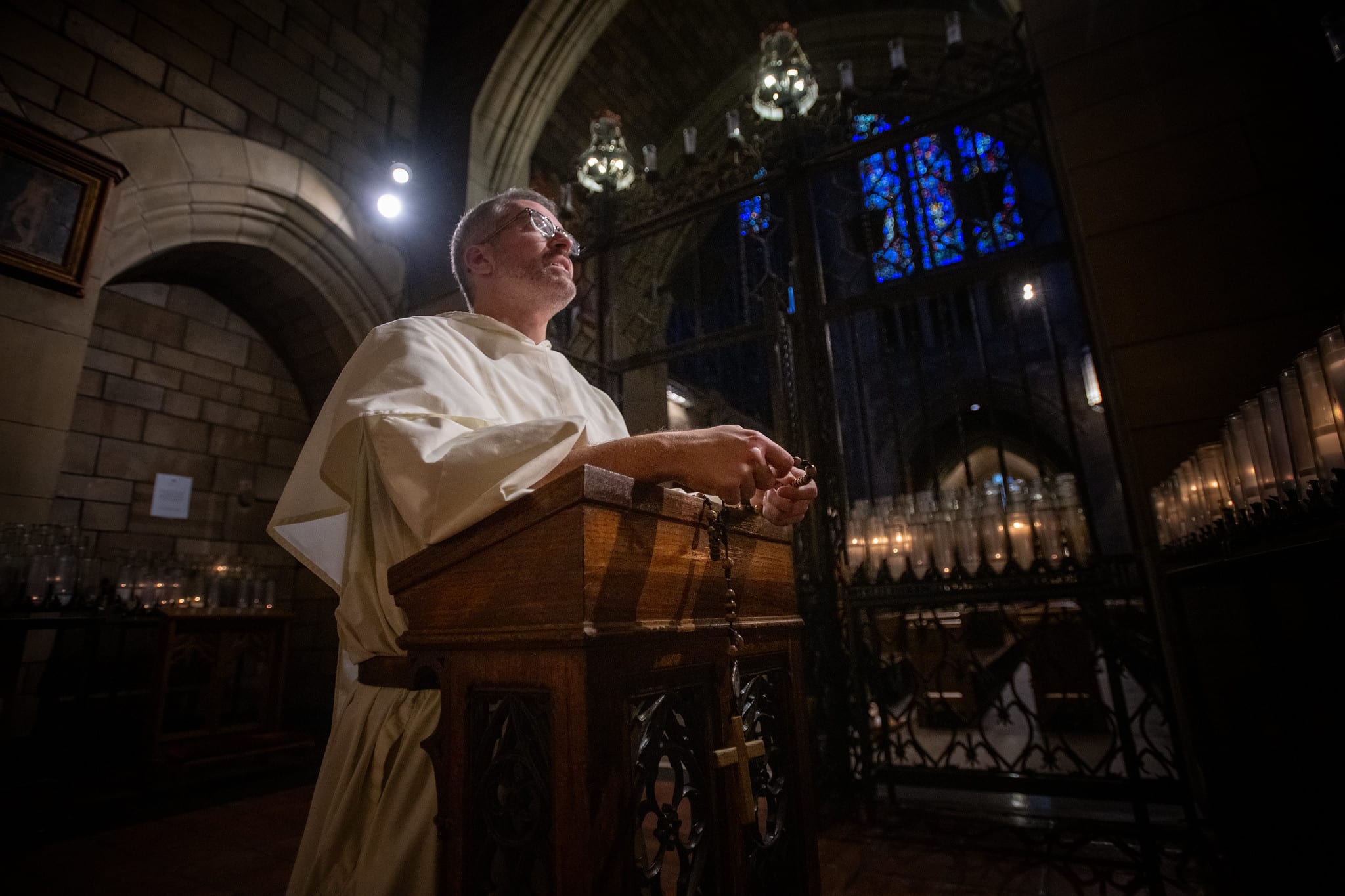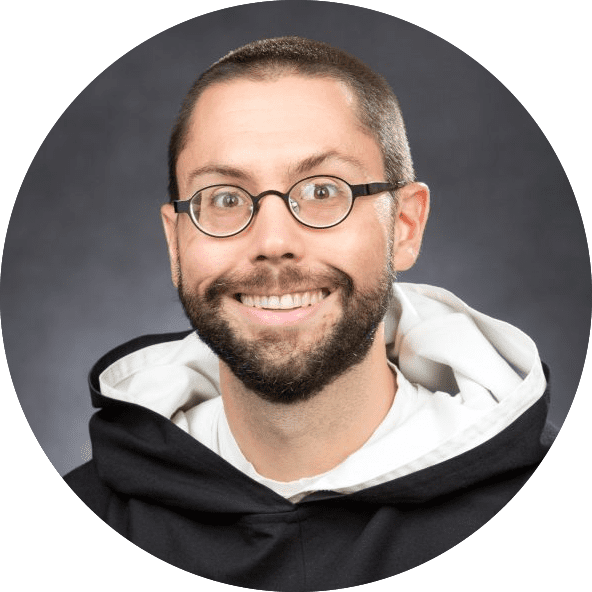 Catholic Social Teaching: An Interview with Fr. Thomas More Garrett, O.P.
Catholic Social Teaching: An Interview with Fr. Thomas More Garrett, O.P.
By BlackFriars Staff
Before joining the Order, Fr. Thomas More Garrett, O.P., was a lawyer in private practice and worked as a US Congressional aide. After his ordination, he joined Providence College as an associate vice president and associate general counsel, and serves on the faculty of the business school, where he teaches courses in business law and financial markets and institutions. In 2022, he was appointed Promoter of Catholic Social Teaching by the province.
What is your role as Promoter of Catholic Social Teaching, and is there a particular focus you hope to bring to it?
The promoter’s role is to create opportunities for the province to contribute toward the advancement of the Church’s social teaching and then to raise awareness of those efforts so that others might join us. In this task, the promoter is assisted by an advisory council that consists of Frs Peter Batts (professor of theology at PC), Josemaría Guzmán-Domínguez (campus minister at Johns Hopkins University), Isaac Beiter (campus minister at NYU) and Br. Basil Burroughs, who is in formation for the priesthood at the Dominican House of Studies.
There are a couple of areas that merit greater attention. It has been several years since John Paul II spoke directly to the spirituality of the work in Laborem Exercens and several more since Leo XIII addressed workplace conditions in Rerum Novarum. The principles in these encyclicals are still valid, but there is a need for guidance in their adaptation to present conditions. For example, the dignity of the human person receives significant attention today. Should dignitarian rights not include protections for conscientious objections on the part of participants in the marketplace? Reports of various professionals from pharmacists to photographers losing their jobs or having their businesses shuttered appear regularly. This should not happen in a society that prizes the dignity of each individual. Workers risk being reduced to something like a computer program that executes orders on command.
The professional environment presents other challenges. Workplace activism that advocates social change has been on the rise in the last several months. Many of the young people we serve will encounter pressure to contribute and support initiatives that are contrary to the genuine good of society. I think that God has placed Dominicans in their lives, in part, to equip them to manage these circumstances.
The United Nations is one place where the dignity of workers receives much attention. Many of the people we serve are unaware of the Dominican Order’s presence at the UN. This past summer, one of our students at PC worked with the delegation at its offices in Switzerland. I would like to continue and expand opportunities for the students we minister to at several colleges and universities to be a part of this mission. Looking further into the future, our province’s presence in New York might create possibilities for the Order’s mission to grow its activities at the UN’s headquarters in Manhattan.
The US has seen a disturbing rise in deaths by suicide, overdose, and the effects of alcoholism in certain populations, even before the pandemic. Does the social teaching of the Church offer insights that might be brought to bear on these problems?
A body of evidence reveals that many of the victims of these so-called ‘deaths of despair’ are concentrated in populations that once had strong ties to faith communities. Much of the working class, for instance, had previously been closely associated with Catholicism. Research now shows that the historical link has been severed. Some authors have argued that the loss of that connection suggests that the Catholic Church in the US no longer fulfills the need for community felt by this group, nor is it adequately addressing the challenges that this segment of the population faces. Rerum Novarum spoke, at least in part, to a working class laboring in inhumane conditions. Today, a large part of the working class is suffering from a loss of hope which stems from a dearth of meaningful work. Addressing the absence of faith in populations suffering from ‘deaths of despair’ requires the kind of new attention I spoke of in the earlier question, but in this case with a focus on those with shrinking economic opportunities.
You recently wrote a column in the Providence Journal in which you said of the scientists and medical personnel who helped the world meet the challenge of a global pandemic, “their stories all began with a pregnancy brought to term.” Why do you see that as an important connection to make?
The piece connects abortion and the pandemic at the nexus of surplus. Abortion presuppose a surplus of people. The pandemic brought into focus a general acknowledgement on the part of society as a whole that no one’s life is surplus. The contributions of millions of people around the globe were needed to clear a path from the pandemic. Many people had loved ones touched by medical personnel who worked tirelessly to provide care to them or their family members. Had any one of them not been present, someone and something valuable would be missing. When we terminate a life, we don’t know what possibilities we have eliminated.
Do you incorporate CST into your classes in the business school at PC? If so, how?
Yes, very much so, but in ways that are indirect and complementary to relaying the skill the courses are designed to relate. For instance, in the business law course I often ask students to critique the rationale behind a particular policy enshrined in law or regulation. In the course of the discussion, I’ll interject perspectives that stem from principles of CST. In this manner, CST is presented in a way that should strengthen a student’s grasp of the underlying material.
Along with other participating faculty, I also host a discussion group for business students that meets throughout the semester. This group is operated in cooperation with our campus ministry and explores more explicitly current topics in the commercial world through a Catholic lens. Here we have the opportunity to take CST from the realm of theory and explore its application in concrete, real-world circumstances.
Are there any Dominican saints or blesseds who we can look to as exemplars of living according to and implementing the Church’s social teaching?
Our own St. Martin de Porres is the patron saint of social justice. St. Martin is a literal fixture on the PC campus with Dominican Father Thomas McGlynn’s life-sized statue of the saint featured prominently outside of Martin Hall. St. Catherine of Siena is another great example. Along with working tirelessly to serve the disadvantaged in her city, St. Catherine was actively engaged in helping reestablish political peace by convincing the Holy Father to return to Rome and bring an end to the nearly 70 year-long Avignon papacy.
There are plenty of contemporary examples as well. Dominican Publications of Ireland produced a 2007 book titled Preaching Justice – Dominican Contributions to Social Ethics in the Twentieth Century that chronicles some of the contributions to social justice made by Dominicans more recently. The same publishing house printed a second volume in 2016 to honor the Order’s 800th anniversary.
